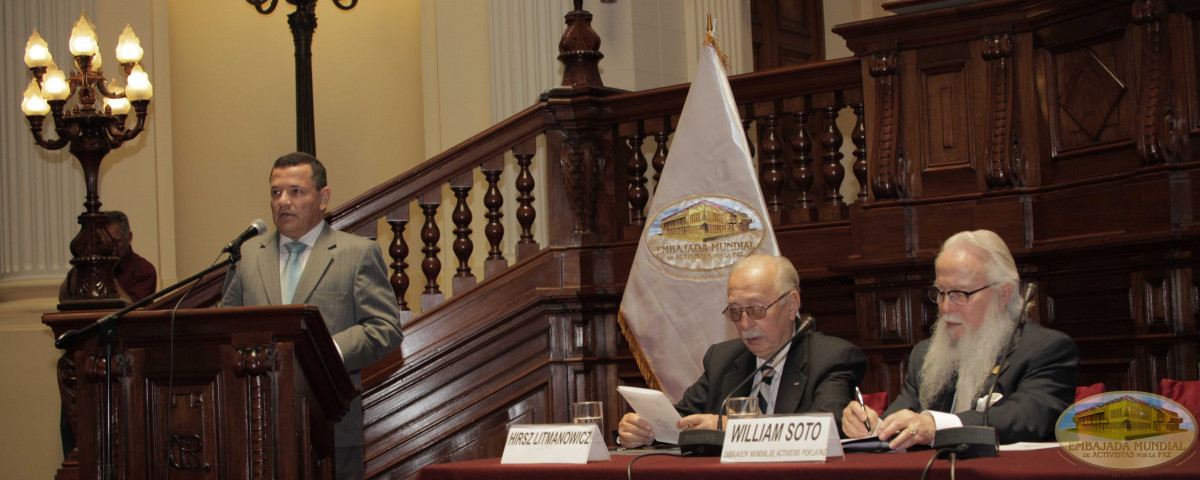
Commemorational Address of the International Day in memory of the victims of the Holocaust, Congress of Peru - Mr. Christian Sánchez
Mr. Christian Sánchez
National Information Officer of the United Nations in Peru
Good afternoon, distinguished members of the board, ladies and gentlemen.
Rejecting any partial or total denial of the Holocaust as a historical fact led the United Nations General Assembly to pass Resolution 60/7 condemning without exceptions all forms of religious intolerance, incitement, harassment or violence against people or communities based on ethnicity or religious beliefs, wherever they may take place.
The United Nations designated January 27th as the annual "International Day in Memory of the Victims of the Holocaust," and asked that the Secretary-General of the United Nations establish an outreach program entitled "The Holocaust and the United Nations", as well as take steps to mobilize society in support of the Holocaust remembrance and education in order to help prevent future acts of genocide.
And this is perhaps the most important lesson that the United Nations tries to communicate: to look to the future on the basis of these terrible facts that happened so long ago.
All crimes can be condemned, but when a crime is committed by reason of a person's being and not of that person's doing, then that crime is even more punishable; because one is Jewish, one is gypsy, one is homosexual, one is black, or white; that is why the crimes committed at that time are far more inexcusable, because they went directly to the being of the person.
That is why, on behalf of all the agencies found in Peru, the United Nations is very pleased to participate, and, in fact, we are thankful for the opportunity of participating in this event and the project "Traces to Remember".
Allow me, and very briefly, to read the message that the Secretary-General of the United Nations, Mr. Ban Ki Moon, has offered for this day:
Every year on the anniversary of the liberation of the Auschwitz concentration camp, we commemorate the victims of the Holocaust, remember the suffering of millions of innocent people, and highlight the dangers of anti-Semitism and hatred of any kind.
This year we focus our activities on the journey through the Holocaust; which reminds me of a trip I made recently. Last November, I went through the infamous crowned door of Auschwitz, and I will never forget that visit. I looked at the appalling remnants of the machinery of genocide as well as moving images of the life of European Jews in the 1930s: weddings, family meals, rituals, simple scenes of daily life, all extinguished by a systematic murder plot unparalleled in human history. I saw the barracks where Jews, Romans, homosexuals, rebels, prisoners of war and people with disabilities spent their last days in the most heinous conditions.
The United Nations was founded to prevent such horrors from ever happening again. However, tragedies such as Cambodia, Rwanda, Srebrenica, show that the poison of genocide remains active.
We must remain vigilant at all times in the face of the intolerance of extremist ideologies, community tensions, and discrimination against minorities; and we must teach our children well.
The "Holocaust and the United Nations" outreach program has developed effective educational materials and established strong partnerships to enable these lessons to be taught to students around the world.
Standing by the crematorium of Auschwitz I felt a deep sadness for all that had happened there, but I was also inspired by those who freed the fields of death for the benefit of all mankind.
Let us unite our forces today in a shared journey towards a world of equality and dignity for all.
Thank you very much.